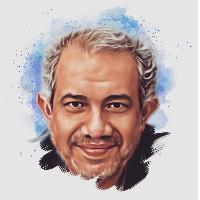An overview of the history of the origin, policy approaches and functional components of the Quranic structures of the country
Criticism about the existence of inefficiency and parallel work in cultural institutions, including Quranic structures, is common and requires scientific investigation.Based on this, the upcoming article has studied the Quranic policy-making in the Islamic Republic of Iran and to do this, document analysis method has been used. Also, to collect data, have been referred to the statutes, administrative structure and performance report of each of the studied institutions and organizations. According to the findings of the research, there are three categories of institutions active in the Quranic fields: a) relatively independent Quranic structures, b) Quranic structures that are a subset of other cultural institutions and are completely dependent on them from an administrative point of view, c) cultural structures that Part of their activity is Quranic..According to the investigation, inappropriate organization of relevant institutions, lack of diversity among the fields of emergence of elites in Quranic affairs, and lack of concentration of senior officials of relevant organizations on Quranic activities are among the existing challenges of Quranic structures in the country. Popularization and dynamic interaction with people's capacities is the most important proposed solution, but in order to improve the existing situation, can be pursued in the following ways: 1-Structural integration of the first class devices, 2-Coordinating and directing the structures of the second category by defining joint collaborations. 3-Alignment of the structures of the third group with the big ideas of the system in this area through the presence and participation in the council arising from the integrated structures.
-
A systematic reading of sociological studies in Covid-19 epidemic in Iranian society
Ahmad Ghiasvand, Elahe Abniki *, Ardashir Entezari
Research Journal on Social Work, Winter 2024 -
Conflating the views of Weber and Durkheim to study the religious beliefs that form the social order
Hossein Kachoian *,
Metodology of Sicial Science and Humanities, -
Exploring the Challenges of Local Governance in the Experience of Islamic City Council Members
Masoud Saremi *, Ardeshir Entezari, Ahmad Ghiasvand, Hossein Imani Jajarmi
Journal of Community Development, -
Policy ideas, goals and structures of inclusive youth Institution in Iran
*, Mahdiyeh Kazemi Taklimi
Journal of Strategic Studies in Culture, -
فراز و فرود فعالیت های جمعی قرآنی؛ توصیفات و تبیین های فعالان این عرصه
*، ،
نشریه دین و سیاست فرهنگی، بهار و تابستان 1401 -
Iran, New China, and the Opening up of the Belt-Way
*, Mohammad Niyazi,
Journal of Strategic Studies in Culture,





